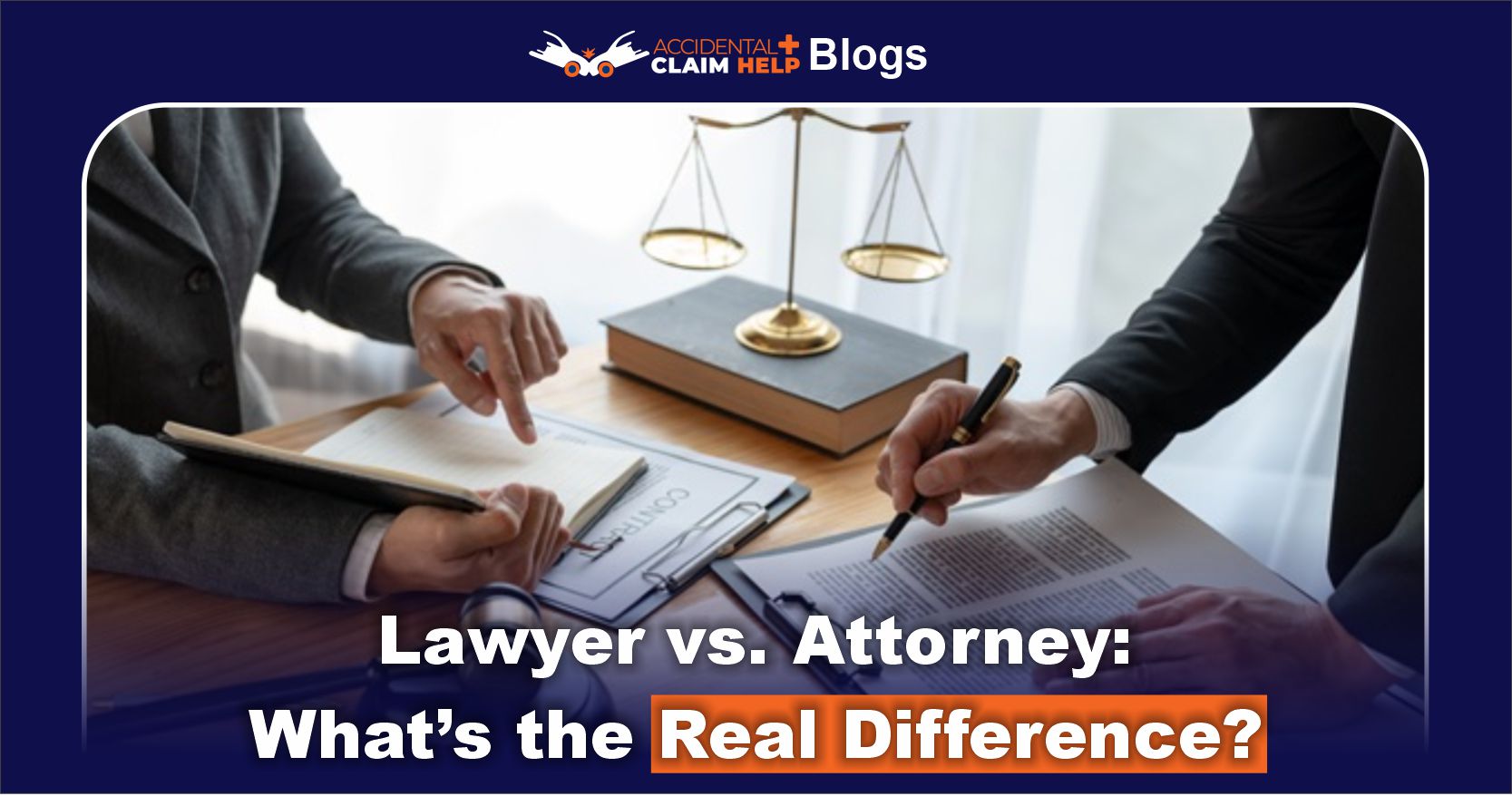Lawyer vs. Attorney: What’s the Real Difference?
Let’s be honest—most of us use “lawyer” and “attorney” like they’re the same thing. And in day-to-day talk, that’s usually okay. But if you’re dealing with a legal issue or looking to hire someone to help, the difference actually matters.
This guide will break it down in plain English, with real-life examples and zero legal jargon.
So… What’s the Actual Difference?
Here’s the quick version:
- A lawyer is someone who went to law school and earned a law degree.
- An attorney is a lawyer who passed the bar exam and is officially licensed to practice law.
So all attorneys are lawyers, but not every lawyer is an attorney.

Let’s say someone goes to law school, graduates, but never takes the bar exam. They’re a lawyer, but they can’t represent you in court. If they do take the bar and get licensed? Now they’re an attorney—and they can speak for you in court, file legal documents, and handle your case from start to finish.
Related: What’s the Difference Between a Paralegal and a Lawyer?
Why Does This Matter for You?
You don’t want to hire the wrong person
Imagine you’re in a legal mess. You find someone who seems to know the law, but later realize they’re not licensed to represent you in court. Now you’ve wasted time, possibly money, and you’re back to square one.
This happens more often than you think. People assume any “legal expert” can go to court for them. Not true. Only a licensed attorney can represent you in front of a judge.
Not all legal help requires an attorney
If you’re just looking for someone to:
- Review a contract
- Help with paperwork
- Explain your legal rights
A lawyer might be able to help, even if they don’t go to court.
But if your situation involves a lawsuit, criminal charges, or court hearings, you need someone who’s legally allowed to represent you. That’s an attorney.
Real-Life Examples to Make It Clear
Let’s say you’re starting a small business and need help drafting partnership agreements. You don’t plan on going to court or suing anyone; you just need some solid legal advice. A lawyer with the right background could help you out just fine.
Now imagine your business gets sued. You’re definitely going to court, and now you need someone who can argue your case, file motions, and speak on your behalf. That’s attorney territory.
Same thing goes for divorce. If everything’s friendly and you just need help with documents, a lawyer might be enough. But if things turn into a legal fight, you’ll want an attorney by your side.
How Do You Know If Someone Is an Attorney?
The easiest way? Just ask.
Here are some good questions:
- Are you licensed to practice law in this state?
- Can you represent me in court?
- What’s your state bar number?
Most attorneys are listed on their state bar association’s website, where you can check if their license is active. It’s worth the 2-minute search.
Common Misunderstandings
A lot of people assume these two titles mean the same thing. Or that one is just a fancier name than the other. That’s not the case.
Another myth is that anyone who went to law school can help with anything legal. Again, not true. If they haven’t passed the bar or aren’t licensed, there are limits to what they can legally do. In some states, giving legal advice without a license is even considered illegal.
How Other Countries Handle This
In the U.S., the lawyer vs. attorney line is about licensing.
In other countries, it can be different. For example:
- In the UK, you’ll hear about solicitors and barristers.
- In Australia, it’s a similar split.
- In places like Canada or India, different terms like advocate or barrister and solicitor are used, depending on the province or region.
But here in the U.S., it really comes down to whether someone is licensed to practice law.
So, Who Should You Hire?
Here’s the rule of thumb:
- If you need someone to go to court for you or handle something that’s headed in that direction, hire an attorney.
- If you just need legal advice, paperwork, or help understanding the law, a lawyer may be fine—as long as they’re not crossing any legal lines in your state.
Always check if the person is licensed. It’s not rude—it’s smart.
Final Remarks
Understanding the difference between a lawyer and an attorney isn’t just for legal geeks. It’s for anyone who might need help navigating the law—which, let’s face it, is most of us at some point.
So remember:
- A lawyer has legal knowledge.
- An attorney has legal power.







